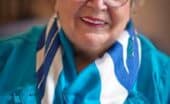Molly Minturn - My family is heartbroken to share that my father died in surgery on Monday, Feb. 10. It…
Tad Szulc R.I.P.
Written by Diana Thebaud Nicholson // May 22, 2001 // Absent Friends // Comments Off on Tad Szulc R.I.P.
See 1995 Interview with Charlie Rose
Books by Tad Szulc and Complete Book Reviews
Tadeusz Witold Szulc July 25, 1926 – May 21, 2001
author and foreign correspondent for The New York Times from 1953 to 1972.
Szulc is credited with breaking the story of the Bay of Pigs invasion.
Tad Szulc, 74, Dies; Times Correspondent Who Uncovered Bay of Pigs Imbroglio
By DANIEL LEWIS
New York Times
Published: May 22, 2001
 Tad Szulc, a former foreign correspondent for The New York Times whose reports of an imminent assault on Cuba by anti-Castro Cubans in 1961 came to reality in the disastrous Bay of Pigs invasion, died of cancer yesterday at his home in Washington. He was 74.
Tad Szulc, a former foreign correspondent for The New York Times whose reports of an imminent assault on Cuba by anti-Castro Cubans in 1961 came to reality in the disastrous Bay of Pigs invasion, died of cancer yesterday at his home in Washington. He was 74.
In postings to Rio de Janeiro, Spain, Portugal and Eastern Europe, Mr. Szulc (pronounced Shultz) covered revolutions and cold war intrigue for The Times and wrote a shelf of books, including biographies of Pope John Paul II and Fidel Castro. His background — he was born in Poland and educated in Switzerland and Brazil — was reflected in his restless fascination with international politics. As a Times correspondent from 1953 to 1972, he had a world in which to pursue those interests — and a charmed way of being in the right part of it just as the plot thickened.
Reporting from Venezuela on the overthrow of the dictator Marco Pérez Jiménez in 1959, he outwitted censors in two of his six languages and became the first journalist to get out news of the coup.
In Prague, he watched as the Czech Communist liberalization movement was crushed on Aug. 20-21, 1968.
”Czechoslovakia was occupied early today by troops of the Soviet Union and four of its Warsaw Pact allies in a series of swift land and air movements,” he wrote then. He was himself thrown out of the country four months later on vague charges that included taking ”an interest in secret military questions.”
It was typical of Mr. Szulc’s fortunes that he was only stopping over in Miami between assignments when he picked up the trail of a news story that would come to rivet the world’s attention and create seismic and long-lasting consequences for American foreign policy.
Anti-Castro partisans who had been training in Florida and Guatemala planned to invade Cuba in mid-April 1961, with direction and financing from the Central Intelligence Agency. In a decision much debated afterward, The Times withheld parts of one of Mr. Szulc’s more crucial articles about those preparations because of concerns about national security. The article was published on the front page of April 7, 1961, minus the news that a Cuba attack was indeed imminent, and with specific references to the C.I.A. deleted.
The next day, on Page 2, under the headline, ”Cuban Intrigue Boiling in Miami as Castro Foes Step Up Efforts,” Mr. Szulc described the situation this way:
”This is a city of open secrets and rampaging rumors for the legions of exiled Cubans who plot the downfall of Premier Fidel Castro and his regime. Men come and go quietly on their secret missions of sabotage and gun-running into Cuba, while others assemble at staging points here to be flown at night to military camps in Guatemala and Louisiana.”
He went on to write that the exiles intended ”to gain a beachhead in Cuba to set up a ‘Government in Arms’ and then request diplomatic recognition by foreign nations.”
Ten days later , about 1,500 fighters landed on Cuba’s southern coast, at a swampy place called Bahía de Cochinos, the Bay of Pigs. Not only did they fail to ignite a dreamed-of mass uprising against Mr. Castro, but within a few days 114 had been killed and more than 1,100 others captured and imprisoned.
Later, President John F. Kennedy, who had been publicly furious about disclosure of preparations for the raid, confided to the Times’s managing editor, Turner Catledge: ”If you had printed more about the operation, you would have saved us from a colossal mistake.” (James Reston, for one, the paper’s Washington correspondent then, did not think so. ”I am quite sure the operation would have gone forward,” he said. ”The thing had been cranked up too far.”)
Mr. Szulc’s follow-up articles on the raid, and his book ”The Cuban Invasion: The Chronicle of a Disaster,” written with Karl E. Meyer, did not sit very well with the Central Intelligence Agency. But long before then, according to the C.I.A.’s files, Mr. Szulc had already been characterized as ”anti-agency” and ”under suspicion as a hostile foreign agent.”
Declassified C.I.A. papers reviewed by The New York Times in 1997 showed that intelligence officials acknowledged that they had no case against Mr. Szulc. Yet the culture of the agency appeared to be such that innuendo about his dealings with Communist leaders and American officials ricocheted around C.I.A. offices throughout his years at The Times, and well into his later career as an author and commentator on foreign policy.
At one point, in any case, a C.I.A. dossier paused to observe: ”It is important to note that Szulc’s activities can be explained by the combination of his personality, ambition, and the demands on an investigative reporter for the NYT. He is an aggressive, insensitive and persistent journalist with the family connections (Ambassador Wiley) and ability to develop the kinds of contacts appropriate to a successful correspondent for a paper like the NYT.” ”Ambassador Wiley” was a reference to the American diplomat John C. Wiley, who was married to Mr. Szulc’s aunt and sponsored his emigration from Brazil to the United States in 1947.
”Aggressive” and ”persistent” actually may have understated the case. Possessing nerve, the obligatory trench coat and a supply of cigarettes, Mr. Szulc traveled around pulling off one feat after another. Bursting with energy, he would sometimes follow up a stream of important newspaper articles with a more personal account for Times Talk, the in-house newssheet — some tale of complication and derring-do meant for the eyes of fellow workers.
There was the day in September 1955, for instance, when the long-expected Peronist coup in Argentina caught the young reporter on the wrong side of a closed border, attending a fisheries meeting in Chile.
”But it turned out that fish can have a silver lining,” he wrote. While the regular Times correspondent in Buenos Aires was hampered by censorship, Mr. Szulc found that he could monitor rebel broadcasts in the comfort of a Santiago hotel and file reports to New York. And by the third day, ”with complete censorship in Buenos Aires, our ad hoc and ad lib bureau took over the lead story in the paper.”
Still, it was necessary to get back into Argentina. And to leave out a few details of his short-lived plan to commandeer a locomotive to the Argentine border, high in the Andes, and from there ”to make my way to rebel headquarters in Mendoza on skis, foot, truck or whatever,” he ended up crossing to Argentina with three other correspondents in a two-engine Chilean airliner: ”The little plane barely cleared the snow-capped Andes. We were short on oxygen, and my lighter would not light, thus depriving me of the reassurance of chain-smoking.”
Mr. Szulc was not known to suffer from writer’s block. In his two decades at The Times he wrote 10 books — most of them, like ”Twilight of the Tyrants,” published in 1959, having to do with countries and events he had covered. After leaving the newspaper, he wrote 10 more books, including an indictment of Henry A. Kissinger’s policies, ”The Illusion of Peace: Foreign Policy in the Nixon Years,” in 1978; and the 1986 ”Fidel: A Critical Portrait,” which cast the Cuban leader as a Latin caudillo ”wrapped in a Marxist-Leninist mantle of convenience.”
His last two books drew upon his Polish roots. ”Pope John Paul II: The Biography,” published in 1995, explored the role of Polish intellectual life and political activism in the pope’s development. ”Chopin in Paris: The Life and Times of the Romantic Composer” came out in 1998. It was ”an appealing, gossipy chronicle,” The New York Times Book Review said.
Mr. Szulc, who turned to freelance writing of books and news articles after leaving The Times in 1972, is survived by his wife, Marianne; a daughter, Nicole Szulc Ginn of Britain; a son, Anthony, of Washington, and a grandson.
Tadeusz Witold Szulc was born in Warsaw on July 25, 1926, the son of Seweryn and Janina Baruch Szulc. His parents left Poland for Brazil in the mid-1930’s, but kept Tadeusz in the Swiss boarding school Le Rosey. He rejoined his family in 1941 and studied at the University of Brazil from 1943 to 1945.
Right out of the university Mr. Szulc found work as a reporter for The Associated Press in Rio. He came to New York in 1949, covering the United Nations for United Press International until 1953. Then he was hired by The New York Times and assigned to the night rewrite desk.
There he stood out, according to Arthur Gelb, a contemporary who later became managing editor, ”by wearing custom-made shirts and expensively tailored suits with a plethora of pockets” He also promoted the cause of tolerable food by co-founding a Tuesday gastronomical club, La Société Secrète des Mangeurs de Mardi.
Although he pursued foreign intrigue assiduously, Mr. Szulc often took time out to file for Times Talk an occasional musings about life on the go. This one, from Rio in 1957, concerned sartorial preparations:
”On every trip I’m certain to run into both winter and summer, to say nothing of spring and fall . . . A reporter in South America who wants to be both comfortable at work and appropriately dressed for most occasions is wise to carry a dinner jacket (or tails and white tie if he really wants to look well), business suits appropriate for different climates and for calls on presidents as well as underground opposition leaders.”


